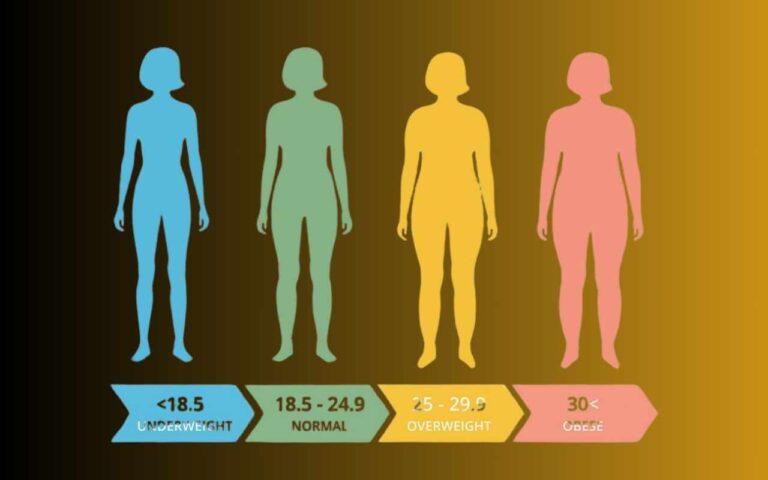The Importance of a Balanced Diet in Fitness
Balanced Diet: Fitness and health are often perceived as a result of physical activity alone. While exercise is a vital component, it is not the sole contributor to a healthy lifestyle. The significance of a balanced diet in achieving fitness goals cannot be overstated. A well-rounded diet provides the necessary nutrients that fuel the body, support muscle growth, aid in recovery, and promote overall well-being. This article delves into the crucial role a balanced diet plays in fitness and how to implement one effectively.
The Fundamentals of a Balanced Diet
A balanced diet consists of a variety of foods in the right proportions, ensuring the intake of essential nutrients: carbohydrates, proteins, fats, vitamins, and minerals. Each of these nutrients plays a unique role in maintaining the body’s health and supporting fitness activities.
Carbohydrates: The Primary Energy Source
Carbohydrates are the body’s primary source of energy, especially during high-intensity workouts. They are broken down into glucose, which fuels muscle activity and brain function. Complex carbohydrates such as whole grains, vegetables, and legumes provide sustained energy, while simple carbohydrates like fruits and dairy products offer quick energy boosts.
Proteins: The Building Blocks of Muscle
Proteins are essential for muscle repair and growth. They are composed of amino acids, which are vital for the recovery process after intense exercise. High-quality protein sources include lean meats, fish, eggs, dairy products, beans, and nuts. Consuming adequate protein helps prevent muscle breakdown and supports the development of lean muscle mass.
Fats: Essential for Energy and Health
Fats are a concentrated source of energy and are necessary for the absorption of fat-soluble vitamins (A, D, E, and K). Healthy fats, such as those found in avocados, nuts, seeds, and olive oil, also support brain function and hormone production. It’s important to differentiate between healthy unsaturated fats and unhealthy saturated and trans fats, which can negatively impact heart health.
Vitamins and Minerals: The Unsung Heroes
Vitamins and minerals are crucial for numerous bodily functions, including immune support, bone health, and energy production. A varied diet rich in fruits, vegetables, whole grains, and lean proteins typically provides the necessary micronutrients. However, individuals with specific deficiencies or dietary restrictions may require supplements to meet their nutritional needs.
The Role of a Balanced Diet in Fitness
Energy Provision
The body requires energy to perform any physical activity, from daily tasks to intense workouts. Carbohydrates are the most efficient energy source, but fats and proteins also contribute, particularly during prolonged exercise. A diet that includes a balanced mix of these macronutrients ensures sustained energy levels, preventing fatigue and enhancing performance.
Muscle Growth and Repair
Exercise, especially strength training, causes microscopic tears in muscle fibers. Proteins play a critical role in repairing these tears, leading to muscle growth and increased strength. Consuming protein-rich foods after workouts provides the amino acids needed for this repair process, optimizing recovery and reducing the risk of injury.

Weight Management
Achieving and maintaining a healthy weight is a common fitness goal. A balanced diet helps regulate appetite and promotes satiety, making it easier to manage calorie intake. High-fiber foods like vegetables, fruits, and whole grains help control hunger, while protein-rich foods increase feelings of fullness. Healthy fats also contribute to satiety and should not be neglected in a weight management plan.
Improved Metabolism
A well-balanced diet supports a healthy metabolism, which is crucial for burning calories efficiently. Proteins require more energy to digest compared to carbohydrates and fats, thus boosting the metabolic rate. Additionally, certain vitamins and minerals, such as B vitamins, iron, and magnesium, are essential for metabolic processes.
10 Tips to Better Sleep at Night
Enhanced Immune Function
Regular exercise can temporarily weaken the immune system, making it important to support immune function through diet. Nutrient-dense foods rich in vitamins C and E, zinc, and antioxidants help bolster the immune system, reducing the risk of illness and ensuring consistent training.
Practical Tips for Implementing a Balanced Diet
Plan Your Meals
Meal planning is a practical approach to maintaining a balanced diet. Preparing meals in advance ensures a diverse intake of nutrients and helps avoid the temptation of unhealthy, convenience foods. Focus on including a variety of food groups in each meal.
Stay Hydrated
Hydration is a key component of a balanced diet. Water is vital for digestion, nutrient absorption, and overall bodily functions. During exercise, fluid loss through sweat needs to be replenished to maintain performance and prevent dehydration.
Portion Control
Understanding portion sizes helps manage calorie intake without the need for restrictive dieting. Eating appropriate portions of different food groups ensures a balanced intake of nutrients without overeating.
Mindful Eating
Practicing mindful eating involves paying attention to hunger and fullness cues, eating slowly, and savoring each bite. This approach helps prevent overeating and promotes a healthy relationship with food.
Incorporate Variety
A varied diet not only ensures a wide range of nutrients but also keeps meals interesting and enjoyable. Experiment with different foods, recipes, and cuisines to maintain motivation and satisfaction.
The Intersection of Diet and Exercise
Pre-Workout Nutrition
Eating before exercise provides the energy needed for optimal performance. A meal or snack rich in carbohydrates and moderate in protein consumed 1-3 hours before working out, is ideal. Examples include oatmeal with fruit, a turkey sandwich on whole-grain bread, or a smoothie with yogurt and berries.
Post-Workout Nutrition
Recovery nutrition is just as important as pre-workout fueling. Consuming a combination of carbohydrates and proteins within 30 minutes to two hours after exercise aids in glycogen replenishment and muscle repair. Options include a banana with peanut butter, a protein shake with fruit, or chicken with quinoa.
Hydration Strategies
Proper hydration before, during, and after exercise is essential. Drinking water throughout the day and incorporating electrolyte-rich beverages during prolonged workouts helps maintain fluid balance and prevent dehydration.
Special Considerations
Individual Needs
Nutritional needs vary based on age, gender, activity level, and health status. Consulting with a registered dietitian or nutritionist can help tailor a balanced diet to meet specific individual requirements.
Dietary Restrictions
Individuals with dietary restrictions, such as vegetarians, vegans, or those with food allergies, need to ensure they are still meeting their nutritional needs. This may involve finding alternative sources of essential nutrients or considering supplements.
Supplements
While a balanced diet should ideally provide all the necessary nutrients, supplements can be beneficial in certain situations. For example, athletes may benefit from protein powders, while individuals with vitamin D deficiency may need supplements. It’s important to consult a healthcare professional before starting any supplement regimen.
Balanced diet food list (balance diet nutrients)
A balanced diet is crucial for maintaining optimal health and well-being. It ensures that the body gets all the essential nutrients it needs to function properly. A well-rounded diet includes a variety of foods from all the major food groups: fruits, vegetables, grains, protein, and dairy. This article will provide a detailed food list to help you create a balanced diet and achieve a healthier lifestyle.
1. Fruits
Fruits are a rich source of essential vitamins, minerals, and fiber. They are also low in calories, making them an excellent choice for a balanced diet. Here are some fruits to include in your diet:
- Apples: Rich in fiber and vitamin C.
- Bananas: High in potassium and vitamin B6.
- Oranges: Packed with vitamin C and antioxidants.
- Berries (strawberries, blueberries, raspberries): High in fiber, vitamins, and antioxidants.
- Grapes: Contain vitamins C and K and antioxidants.
- Mangoes: Rich in vitamins A and C.
2. Vegetables
Vegetables are another essential component of a balanced diet. They are low in fat and calories but high in vitamins, minerals, and fiber. Aim to include a variety of vegetables in your diet:
- Leafy Greens (spinach, kale, Swiss chard): Rich in vitamins A, C, and K, as well as iron and calcium.
- Cruciferous Vegetables (broccoli, cauliflower, Brussels sprouts): Contain vitamins C, K, and folate.
- Root Vegetables (carrots, sweet potatoes, beets): High in fiber, vitamins A and C.
- Bell Peppers: Rich in vitamins A and C.
- Tomatoes: High in vitamins C and K, and lycopene.
3. Grains
Grains are a significant source of energy and provide essential nutrients such as fiber, B vitamins, and minerals. It is important to choose whole grains over refined grains to maximize nutritional benefits:
- Whole Wheat Bread: Provides fiber, B vitamins, and minerals.
- Brown Rice: High in fiber and B vitamins.
- Quinoa: Rich in protein, fiber, and various minerals.
- Oats: High in fiber and can help lower cholesterol levels.
- Barley: Provides fiber and B vitamins.
- Millet: Rich in fiber, protein, and minerals.
4. Protein
Protein is essential for building and repairing tissues, making enzymes and hormones, and supporting overall health. Include a variety of protein sources in your diet:
- Lean Meats (chicken, turkey): High in protein and low in fat.
- Fish (salmon, tuna, mackerel): Rich in omega-3 fatty acids and protein.
- Eggs: A complete protein source with all essential amino acids.
- Legumes (beans, lentils, chickpeas): High in protein, fiber, and various vitamins and minerals.
- Nuts and Seeds (almonds, walnuts, chia seeds, flaxseeds): Provide protein, healthy fats, and fiber.
- Tofu and Tempeh: Plant-based protein sources rich in essential amino acids.
5. Dairy
Dairy products are excellent sources of calcium, vitamin D, and protein. If you are lactose intolerant or prefer non-dairy options, there are plenty of alternatives available:
- Milk: Rich in calcium, vitamin D, and protein.
- Yogurt: Provides probiotics, protein, and calcium.
- Cheese: High in calcium and protein.
- Non-Dairy Alternatives (almond milk, soy milk, coconut milk): Fortified with calcium and vitamin D.
6. Fats
Healthy fats are essential for brain function, hormone production, and overall health. Include sources of healthy fats in your diet:
- Avocados: High in monounsaturated fats and fiber.
- Olive Oil: Rich in monounsaturated fats and antioxidants.
- Nuts and Seeds: Provide healthy fats, protein, and fiber.
- Fatty Fish: Contain omega-3 fatty acids.
- Chia Seeds and Flaxseeds: Rich in omega-3 fatty acids and fiber.
Tips for a Balanced Diet
- Variety: Include a wide range of foods from all food groups to ensure you get all the necessary nutrients.
- Portion Control: Be mindful of portion sizes to maintain a healthy weight.
- Hydration: Drink plenty of water throughout the day.
- Limit Processed Foods: Avoid foods high in added sugars, unhealthy fats, and sodium.
- Plan Ahead: Prepare meals and snacks in advance to make healthy eating easier.
Conclusion
A balanced diet is foundational to achieving and maintaining fitness goals. It provides the energy needed for physical activity, supports muscle growth and repair, aids in weight management, and enhances overall health. Individuals can optimize their diet by incorporating various nutrient-rich foods, practicing mindful eating, and staying hydrated to support their fitness journey. Remember, fitness is a holistic endeavor that combines exercise with proper nutrition for the best results.








2 Comments